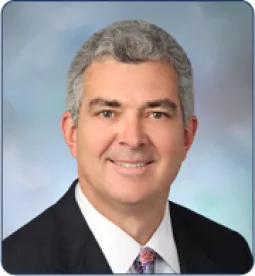A recently proposed class action settlement agreement illustrates the potential litigation perils when any established business relies on outsourced, undercapitalized marketing agents who lack either the assets or insurance to adequately defend TCPA class action litigation. Indeed, the only proposed recovery for the class is an agreement to provide testimony and documentary evidence of the co-defendant’s actual knowledge of the conduct that violated the TCPA, and its alleged authorization of the subject unlawful text messaging.
In Jessica Lee et al. v. Stonebridge Life Insurance Co. and Trifecta Marketing Group LLC, No. CV 11—0043-RS (N.D. Cal.), the class action plaintiff alleged that the defendants made autodialed text messages to wireless telephone numbers to encourage the calls to a toll-free number to claim an illusory “$100 Wal-Mart gift card voucher.” The text messaging campaign in Lee v. Stonebridge was allegedly developed to drive inbound call traffic to the marketing partner’s call centers, after which callers would receive a return call about the defendant insurer’s insurance products.
The TCPA and implementing FCC regulations effective at the time of the events that are the subject of this lawsuit generally made it unlawful for calls to be made with an “automatic telephone dialing system,” without the “prior express consent” of the called party, to “any telephone number assigned to a paging service, cellular telephone service, specialized mobile radio service, or other radio common carrier service or any service for which the called party is charged for the call….” 47 U.S.C. § 227(b)(1)(A)(iii); see also, 47 C.F.R. § 64.1200(a)(1)(iii).[1] The FCC has declared that sellers may be liable under the TCPA “under a broad range of agency principles, including not only formal agency, but also principles of apparent authority and ratification.” In the Matter of the Joint Petition Filed by Dish Network, LLC…for Declaratory Ruling Concerning the Telephone Consumer Protection Act Rules, 2013 WL 1934349, at *9, 28 F.C.C.R. 6574, 6584 (May 9, 2013).
After two years of litigation, the district court, on February 12, 2013, certified the TCPA class action as “[a]ll individuals that received a text message from telephone number … from November 28, 2010 through December 2, 2010.” Some 60,000 unsolicited text messages were allegedly sent to the class. Because the TCPA provides for statutory damages of $500 to $1500 per violation, the potential damages exposure for all violations, depending on the participating class members, could be as high as $30 Million to $90 Million.
On October 23, 2013, the plaintiff filed for preliminary approval of a class action settlement with the defendant marketing agent as required by Federal Rule of Civil Procedure Rule 23(e). Due to Trifecta’s insufficient financial resources “to satisfy any judgment entered against it” “or to meaningfully fund any class action settlement”, the settlement agreement provides that upon court Preliminary Approval, “Trifecta agrees to provide Plaintiff and Class Counsel with its complete and full cooperation in the continued prosecution of the Action against Stonebridge…” and specifically, “testimony, along with …documents,truthfully attesting that Stonebridge (and/or its related entities) had knowledge of and authorized the text messaging that was performed….” Lee, Plaintiff’s Notice of Motion and Motion for Preliminary Approval of Partial Class Action Settlement Agreement , Exhibit 1 at 1, 7 (Class Action Settlement Agreement and Release, Para. 2.3 & 2.3(a) Complete Cooperation) (filed Oct. 23, 2013)(emphasis added). Presumably, Trifecta would not have been as forthright or willing to implicate its co-defendant in its testimony or discovery responses in the absence of this settlement agreement releasing it from liability. In fact, Plaintiff claimed to encounter “significant resistance” to discovery from both defendants, requiring filing of a motion to compel discovery. Id., Plaintiff’s Motion at 9. And because the Plaintiff alleged that Stonebridge had “repeatedly taken the position with Class Counsel and the Court that it was completely unaware of Trifecta’s use of text message marketing, and could not control Trifecta’s actions…” (id. at 2), the benefit to Plaintiff’s case of Trifecta’s cooperation in testifying as to its co-defendant’s knowledge of the text message marketing cannot be underestimated.
If this settlement agreement wins preliminary approval, this could significantly increase the value of the case for the class action plaintiff, since she would appear to have a cooperative and knowledgeable witness testifying and producing documents against the remaining non-judgment proof defendant, confirming that it knew and approved of the text messaging campaign undertaken on its behalf. The important lesson of this case for all businesses is: if you outsource your outbound telemarketing, make certain you engage an entity that (1) knows and will comply with all TCPA requirements; and (2) has adequate commercial liability insurance with sufficient limits (and/or other assets) to cover potential claims for TCPA violations; and (3) provides an enforceable, meaningful indemnification agreement backed by insurance or adequate assets.
A copy of the proposed settlement agreement is available here.
[1] However, under the FCC’s amended regulations, effective October 16, 2013, telemarketers must generally obtain the prior express written consent of the called party for autodialed or prerecorded telemarketing calls to wireless numbers and prerecorded calls to residential landlines. See, In the Matter of Rules and Regulations Implementing the Telephone Consumer Protection Act of 1991, FCC Report and Order, CG Docket No. 02-278, ¶ 68 (Feb. 15, 2012) (“2012 Report and Order”) (“Once our written consent rules become effective, however, an entity will no longer be able to rely on non-written forms of express consent to make autodialed or prerecorded voice telemarketing calls, and thus could be liable for making such calls absent prior written consent.”).



 />i
/>i

